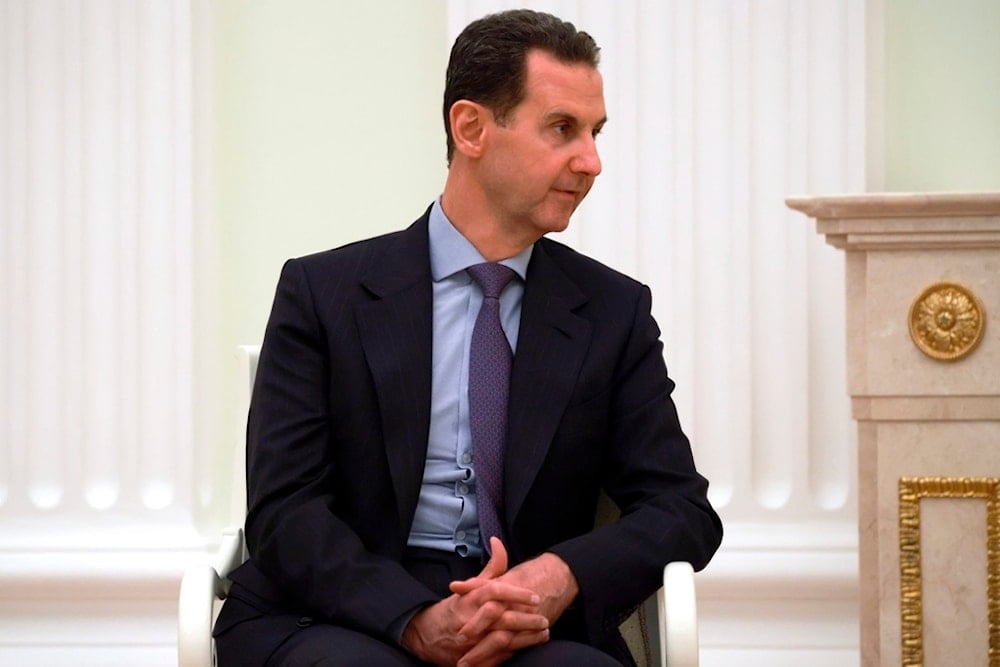Ex-Syrian President Assad, family in Russia, granted asylum: Kremlin
A Kremlin source says Russia has consistently advocated for a political resolution to the Syrian crisis.
-

Ex-Syrian President Bashar Assad listens to Russian President Vladimir Putin during their meeting at the Kremlin in Moscow, Russia, Wednesday, March 15, 2023. (Sputnik, Kremlin Pool Photo via AP)
Former Syrian President Bashar al-Assad and his family have arrived in Moscow, where they have been granted asylum on humanitarian grounds, a Kremlin source confirmed to RIA Novosti on Sunday.
Russia's Vesti Nedelya newspaper, citing unnamed sources, reported that al-Assad, who stepped down after armed groups, now serving as the transitional government forces of Syria, seized control of Damascus on Sunday, had arrived in Moscow with his family.
In a related context, the Kremlin source said Russia has consistently advocated for a political resolution to the Syrian crisis and seeks UN oversight of renewed negotiations.
"Russia has always supported the search for a political solution to resolve the Syrian crisis. We proceed from the need to resume negotiations under the auspices of the UN," the source stated.
The source also revealed that Russian officials are in communication with representatives of the armed Syrian opposition, whose leaders have pledged to ensure the security of Russian military bases and diplomatic missions in Syria.
Elsewhere, the Kremlin sources affirmed that Moscow is committed to continuing political dialogue to safeguard the interests of the Syrian people and further strengthen Russia-Syria relations.
Earlier on Sunday, Russian Foreign Minister Sergey Lavrov confirmed on Sunday that "Moscow did not participate in talks on the transfer of power" in Syria.
Lavrov expressed Russia's concern about developments in Syria, stressing that "Russian military bases in Syria are in a mode of increased combat readiness."
He pointed out that "[Former President Bashar] al-Assad left the presidential post and Syria after negotiations with Syrian conflict participants, giving instructions to transfer power peacefully," calling on all parties to refrain from violence and resolve problems politically.
Read more: Syrian opposition proposes 18-month transition plan prior to elections

 2 Min Read
2 Min Read








